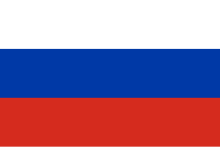Russia at the 2016 Summer Olympics
| Russia at the 2016 Summer Olympics |
|||||||||
|---|---|---|---|---|---|---|---|---|---|
 |
|||||||||
| IOC code | RUS | ||||||||
| NOC | Russian Olympic Committee | ||||||||
| Website |
www |
||||||||
| in Rio de Janeiro | |||||||||
| Competitors | 291 in 26 sports | ||||||||
| Flag bearer |
Sergey Tetyukhin (opening) Natalia Ishchenko and Svetlana Romashina (closing) |
||||||||
|
Medals Ranked 4th |
|
||||||||
| Summer Olympics appearances (overview) | |||||||||
| Other related appearances | |||||||||
|
|
|||||||||
Russia competed at the 2016 Summer Olympics in Rio de Janeiro, Brazil, from 5 to 21 August 2016. This was Russia's sixth consecutive appearance at the Summer Olympics as an independent nation.
On 18 July 2016, an independent investigation commissioned by World Anti-Doping Agency reported that Russia's Ministry of Sport and Federal Security Service had operated a "state-dictated" system to implement an extensive doping program and to cover up positive samples. Based on these finding the International Olympic Committee called for an emergency meeting to consider banning Russia from the Summer Olympics.
On 24 July 2016, the International Olympic Committee announced that Russian athletes are eligible to compete at the Games only if they can show that they had not been doping before the Games, unlike participants of any other nationality. Originally Russia submitted a list of 389 athletes for competition. On 7 August 2016, the IOC cleared 278 athletes, while 111 were removed because of the scandal.
On 8 December 2016, silver medalist Misha Aloyan was found to have committed an anti-doping rule violation after testing positive for Tuaminoheptane, a specified stimulant, prohibited in-competition under S6 on the WADA Prohibited List, during an in-competition doping control on 21 August 2016. The results obtained by the athlete in the Rio 2016 Olympic Games were disqualified.
Medal Changes Silver medalist Misha Aloyan was found to have committed an anti-doping rule violation after testing positive for Tuaminoheptane, a specified stimulant, prohibited in-competition under S6 on the WADA Prohibited List, during an in-competition doping control on 21 August 2016. The results obtained by the athlete in the Rio 2016 Olympic Games were disqualified.
In 2015, due to allegations of an extensive state sponsored doping program in the Russian Federation, the World Anti-Doping Agency (WADA) commissioned an investigation into the accusations. The report of this investigation was published in November 2015, reported widespread doping as well as actions between coaches and official testing laboratories to cover it up.
...
Wikipedia
